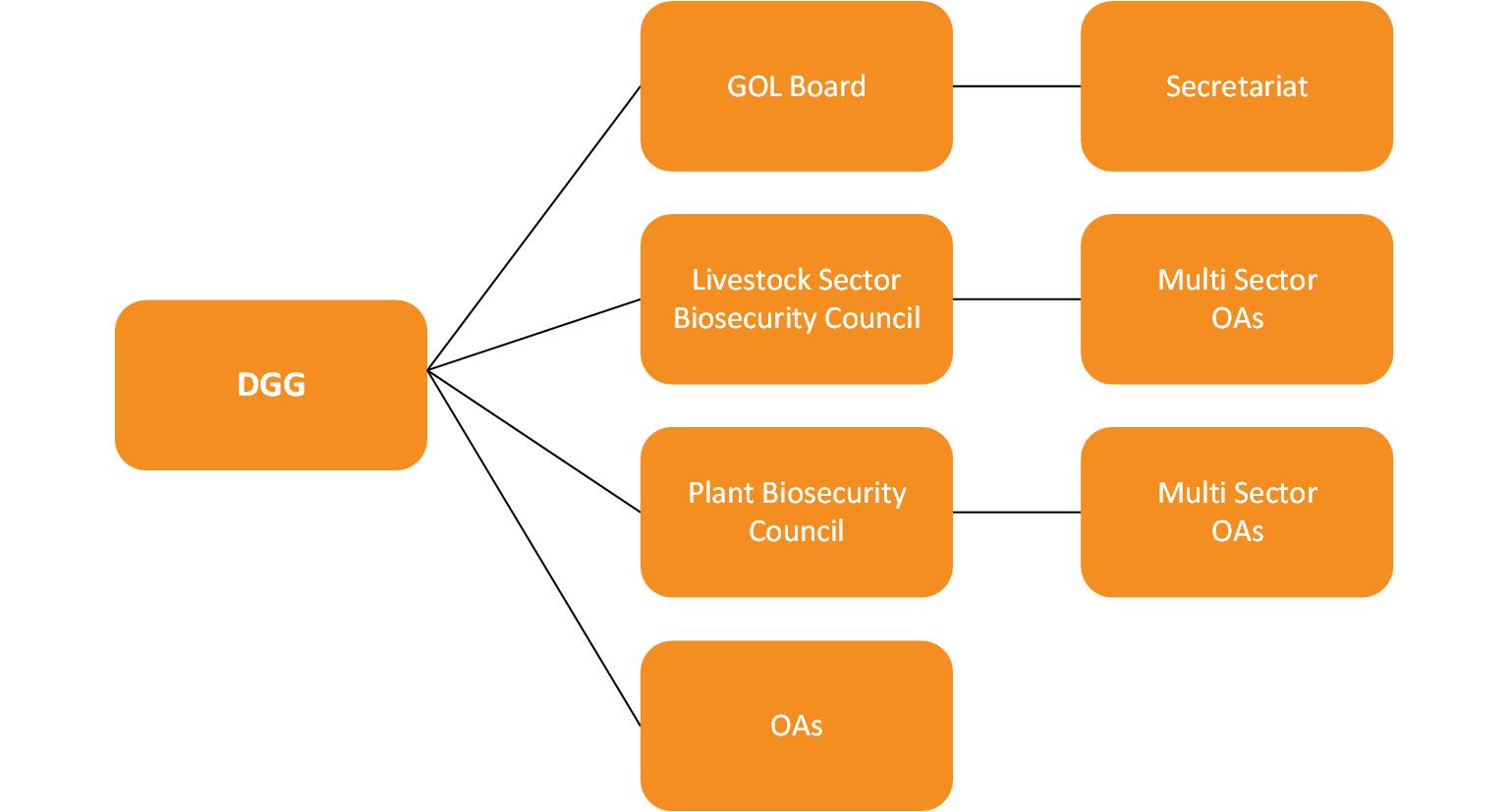Governance and administration of GIA
The DGG has adopted a number of governance frameworks for GIA, the latest of which came into effect on 1 February 2020. The GIA framework consists of the following elements:
- A Governance Group (DGG) made up of all Signatories (meeting 2-3 times per year) that is the highest decision-making body of GIA and is the guardian of the GIA Deed. DGG is ultimately responsible for the implementation of the GIA Deed.
- The Board of GIA Operations Limited (GOL), made up of 3-5 members appointed by shareholders and one observer from MPI. The GOL Board meets approximately every 6-8 weeks and is charged with day-to-day governance of GIA activities and oversees the activities of the GIA Secretariat.
- The GIA Secretariat, which implements the decisions of the DGG provides support and advice on GIA matters. The Secretariat is housed in GOL.
- Operational Agreements (OAs), that serve as contracts between two or more Signatories for agreed readiness and response activities. Where necessary a governance body will be established to oversee the OA.
- In addition to this formal structure, sector-based councils (SBCs) may be formed to coordinate common sector interests (primarily activities and investments agreed in related operational agreements). Three SBCs are currently in operation - the Plant Biosecurity Council, the Livestock Sector Biosecurity Council and the LSBC CE Forum.
Relationships between components of GIA
 |
|
|
OAs are accountable to their signatory partners, and where applicable, to the SBC that includes their signatory partners. Dotted lines represent liaison and consultation relationships. So, although the DGG does not ‘supervise’ the SBCs or OAs, its overall responsibility for GIA and the Deed means that two-way consultation between DGG and SBCs should occur. In practical terms, the overlapping membership of these bodies ensures this occurs.
|
The Deed Governance Group (DGG)
The DGG is the highest decision-making body of GIA and is made up of a representative from each of the Deed Signatory groups. The group oversees the Deed processes and sets GIA operational rules including the processes for decision-making outside of consensus.
The DGG has no role in technical matters including biosecurity response and operational agreements. It is primarily focused on oversight of Deed implementation and administration to safeguard the integrity of GIA. They meet 2-3 times per year.
DGG Terms of Reference
The GIA Secretariat
The GIA Secretariat facilitates implementation of the partnership described in the GIA Deed. It is an independent body that acts in the interests of all Deed Signatories. It has a range of responsibilities such as facilitating the negotiation and drafting of operational agreements between Signatories and supporting and advising the Governance Group in its responsibilities.
The GIA Secretariat ultimately is accountable to the Deed Governance Group for the effective and efficient performance of its responsibilities. Directly, it is accountable to the GOL Board.
Each year DGG agrees a work programme and budget for the Secretariat which performs a mix of core services (funded by all partners) and user pays services (funded only by those that use them).
More information